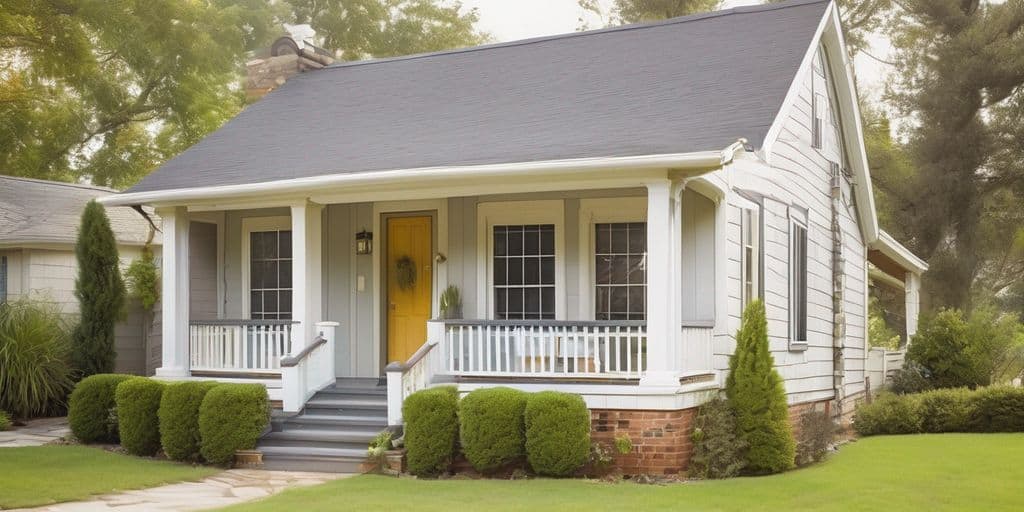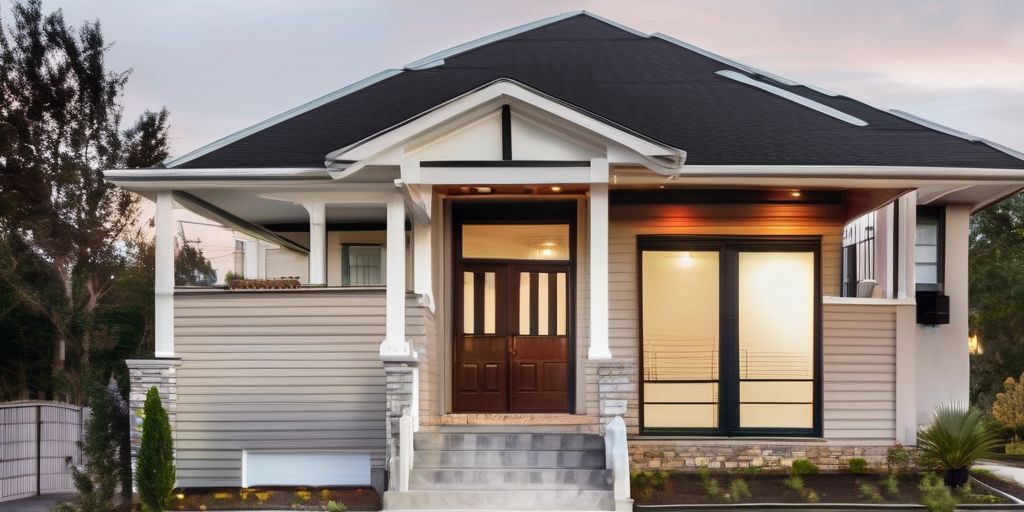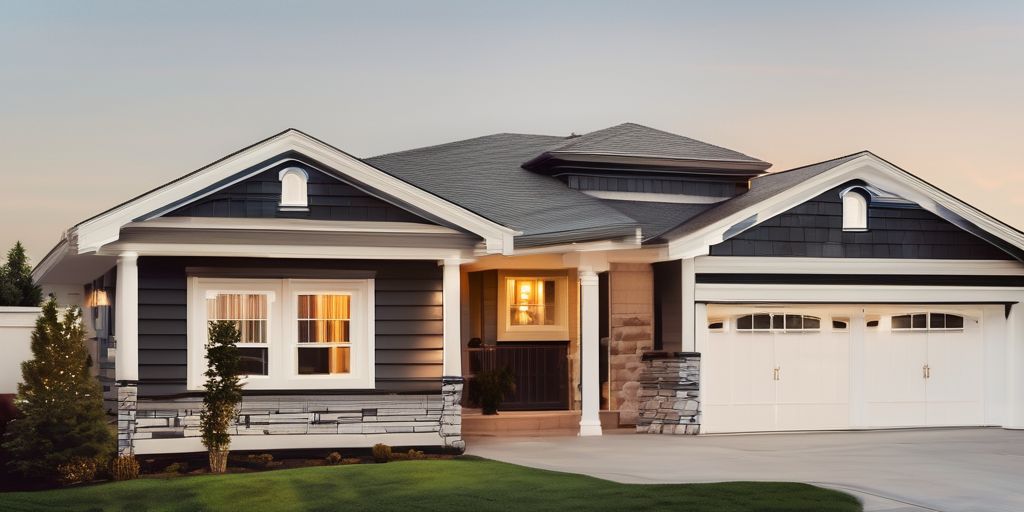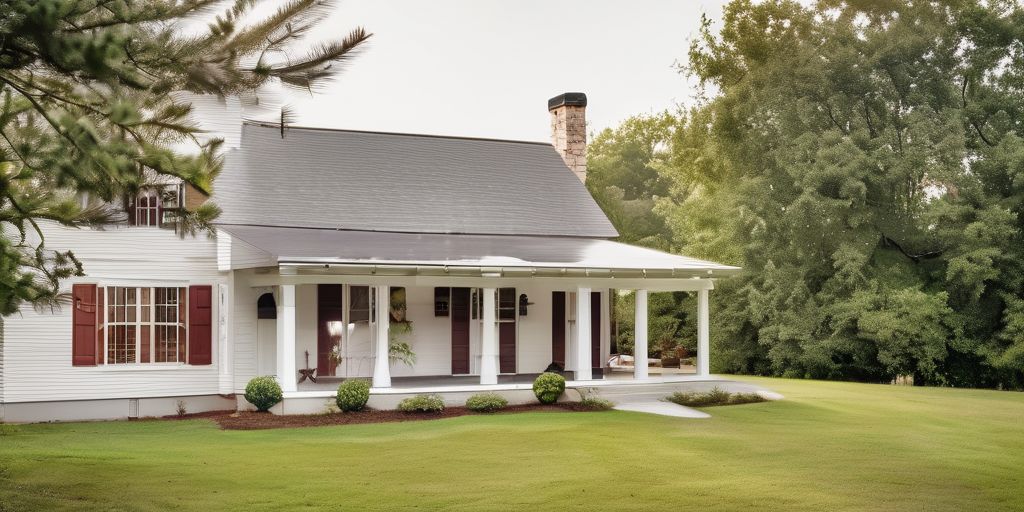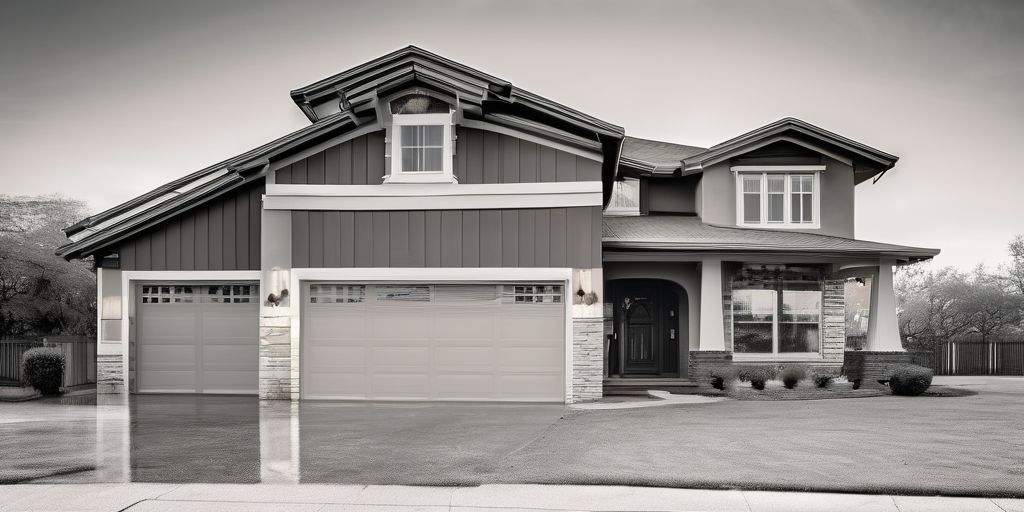Spray painting your house can give it a fresh look quickly and efficiently, but it’s important to think about how it affects the environment. This article will explore the environmental impact of spray painting, compare it to traditional methods, and discuss eco-friendly options. We’ll also look at the durability of spray paint, the types of paint suitable for home exteriors, and how to maintain a spray-painted home.
Key Takeaways
- Spray painting can be faster and sometimes cheaper than traditional painting, but it has its own set of environmental concerns.
- Choosing low-VOC or no-VOC spray paints can reduce harmful emissions and be better for the environment.
- Solar-powered spray painting equipment and efficient application techniques can help minimize waste and energy use.
- Different types of spray paints, like acrylic and latex-based, are suitable for home exteriors, each with their own benefits.
- Regular maintenance, such as cleaning and touch-ups, can extend the life of a spray-painted exterior.
Understanding the Environmental Impact of Spray Painting
Spray painting your house exterior can have several environmental impacts. It’s important to be aware of these to make informed decisions.
Air Quality Concerns
Spray painting can release volatile organic compounds (VOCs) into the air. These compounds contribute to air pollution and can be harmful to both humans and animals. To minimize this, consider using low-VOC or no-VOC paints. Additionally, always spray paint in a well-ventilated area to reduce the concentration of harmful chemicals in the air.
Waste Management
Aerosol spray paint cans are often classified as hazardous waste due to their flammable contents. Proper disposal is crucial to avoid environmental contamination. Here are some tips for managing waste:
- Use up all the paint in the can to avoid leftover hazardous material.
- Dispose of empty cans at designated hazardous waste facilities.
- Consider using refillable spray systems to reduce waste.
Impact on Local Wildlife
Spray painting can also affect local wildlife. The chemicals in the paint can be harmful if they come into contact with animals or plants. To protect local wildlife:
- Avoid spraying near gardens or water sources.
- Use tarps or barriers to contain overspray.
- Clean up any spills immediately to prevent contamination.
Understanding the factors that affect paint’s dry time can help you achieve better paint finishes in quicker time. This is how long it takes paint to dry.
By being mindful of these environmental impacts, you can make more eco-friendly choices when spray painting your house exterior.
Choosing Eco-Friendly Spray Paint Options
When it comes to spray painting your house, opting for eco-friendly paint choices can make a big difference. These paints are designed to reduce the release of harmful chemicals into the air, making them a safer option for both your family and the environment.
Comparing Spray Painting to Traditional Painting Methods
Cost-Effectiveness
When deciding between spray painting and traditional methods like brush and roller, it’s important to consider the costs. Spray painting equipment can be more expensive upfront, but the speed of application often means labor costs are reduced. On the other hand, traditional painting is more labor-intensive, potentially leading to higher labor costs over time.
Time Efficiency
Spray painting is generally faster than traditional methods. This can translate into lower overall project costs due to reduced labor hours. The quick application is one of the amazing benefits of spray painting services for exterior house renewal.
Material and Equipment Costs
Spray painting requires specialized equipment, which can be costly. However, it provides more uniform coverage with less paint waste. Traditional methods may be cheaper in terms of materials but require more time and effort. Here are some cost-saving tips for an exterior spray painting project:
- Use an airless sprayer
- Invest in high-quality paint
- Properly prepare the surface
- Wear safety gear
- Consider professional help
- Regular maintenance
While traditional methods have their place, spray painting offers a modern alternative that can save time and potentially reduce labor costs. Always follow best practices for equipment use and technique to achieve professional results.
Evaluating the Durability and Longevity of Spray Paint
Factors Affecting Durability
When considering spray painting your house, one of the key factors is understanding the durability and longevity of the finish. The durability of spray paint on different house exteriors is crucial. Here are some points to consider:
- Surface Preparation: Proper preparation of the surface is key to achieving a long-lasting finish.
- Quality of Paint: High-quality paints tend to last longer and provide better protection.
- Environmental Conditions: Weather and climate can significantly impact the longevity of the paint.
- Application Technique: The method used to apply the paint can affect its durability.
Expected Lifespan
Spray paint, when applied correctly and under optimal conditions, can last for several years. If the right house paint is used, the results can look fresh for a decade on a stucco surface and as long as seven years on siding. Here’s a quick overview:
| Surface Type | Expected Lifespan |
|---|---|
| Stucco | Up to 10 years |
| Siding | Up to 7 years |
Maintenance Tips
To ensure the longevity of your spray paint job, regular maintenance is essential. Here are some tips:
- Regular Cleaning: Keep the surface clean to prevent dirt and grime buildup.
- Touch-Up Tips: Address any chips or cracks promptly to maintain the integrity of the paint.
- Preventing Damage: Protect the painted surface from harsh elements and physical damage.
Remember, the longevity of your spray paint job is significantly influenced by the quality of the initial application and ongoing maintenance.
Types of Spray Paint Suitable for Home Exteriors
When it comes to spray painting your home’s exterior, choosing the right type of spray paint is essential for both looks and durability. Here are some key points to keep in mind:
Acrylic-Based Paints
Acrylic-based paints are popular for home exteriors due to their durability and resistance to weather conditions. They offer a smooth finish and are available in a wide range of colors. Acrylic paints are also known for their quick drying time, which can be a significant advantage for exterior painter projects.
Latex-Based Paints
Latex-based paints are another excellent option for home exteriors. They are water-based, making them easy to clean up and environmentally friendly. Latex paints are flexible, which helps them withstand the expansion and contraction of surfaces due to temperature changes. This flexibility makes them less likely to crack over time.
Specialty Paints for Different Surfaces
For unique surfaces like metal, wood, or stucco, specialty paints are available. These paints are formulated to adhere better and provide long-lasting protection. For example, metal surfaces may require a rust-resistant paint, while wood surfaces might benefit from a paint that includes a primer.
When considering the aesthetic appeal, spray painting allows for a high-quality finish that can enhance the curb appeal of any home.
Choosing the right type of spray paint can make a significant difference in the longevity and appearance of your home’s exterior. Proper selection and application can help maintain your home’s beauty and protect it from the elements.
Maintenance and Upkeep for Spray-Painted Homes
Maintaining the appearance and durability of a spray-painted home requires regular attention. Here are some key points to consider for the upkeep of your home’s exterior:
Regular Cleaning
Regular cleaning is essential to keep your spray-painted home looking fresh. Inspect your home twice a year for dirt, grime, and mildew. Use a mild detergent and a soft brush to clean the surface. Avoid using high-pressure washers as they can damage the paint.
Touch-Up Tips
Touching up small areas can prevent larger problems down the road. Keep a small amount of the original paint for touch-ups. Apply up to three thin coats of spray paint and allow each coat to dry before applying the next. This ensures a smooth and even finish.
Preventing Damage
Preventing damage is easier than repairing it. Trim trees and bushes away from the house to avoid scratches. Check for cracks or peeling paint and address them promptly. Consult a professional when repairs or painting requirements are outside of your abilities.
Maintenance is key to preserving the integrity of a spray-painted home. Regular inspections and touch-ups can extend the life of your paint job, especially in a climate with variable weather.
By following these tips, you can ensure your spray-painted home remains beautiful and protected for years to come.
Making the Decision: Should You Spray Paint Your House?
Deciding whether to spray paint your house is a big choice. It can make your home look new and boost its curb appeal. But, it’s important to think about the good and bad sides before making a decision.
Weighing the Pros and Cons
When thinking about spray painting, you should look at both the benefits and the downsides:
Pros:
- Quick and efficient
- Uniform coverage
- Can reach tricky spots
Cons:
- Potential for overspray
- Need for special equipment
- Might require professional help
Environmental Considerations
Spray painting can have an impact on the environment. It’s important to consider:
- Air quality concerns
- Waste management
- Impact on local wildlife
Expert Recommendations
Experts suggest:
- Using low-VOC or no-VOC paints
- Preparing the surface properly
- Choosing the right weather for painting
Tip: Proper preparation and weather considerations are key for successful results.
In the end, whether spray painting is right for your home depends on your specific needs and situation. A fresh coat of paint can do wonders for your home’s look, so choose wisely.
Deciding whether to spray paint your house can be tough. It’s important to weigh the pros and cons before making a choice. If you’re unsure, why not get some expert advice? Visit our website to learn more about the benefits and risks of spray painting your home. Our team is here to help you make the best decision for your house.
Conclusion
Spray painting your house exterior can be a great way to give it a fresh look quickly and efficiently. However, it’s important to consider the environmental impact of your choices. Opting for eco-friendly paints and using energy-efficient equipment can help reduce harmful emissions. While spray painting can be cost-effective and durable, weighing the pros and cons will help you make the best decision for your home. Remember, regular maintenance is key to keeping your home looking its best for years to come.
Frequently Asked Questions
Is spray painting my house more cost-effective than traditional painting methods?
Spray painting can be more cost-effective because it is faster and may require less labor. However, you should also think about the cost of the paint and equipment.
What types of spray paint are suitable for home exteriors?
Acrylic and latex-based spray paints are popular for home exteriors because they last long and can handle different weather conditions.
Are there eco-friendly spray paint options available?
Yes, there are eco-friendly spray paints that have low or no volatile organic compounds (VOCs), which are better for the environment.
How long does spray paint last on a house exterior?
Spray paint can last between 5 to 10 years on a house exterior, depending on the quality of the paint and the weather conditions.
What are the main benefits of spray painting my house?
Spray painting gives a smooth and even finish, is quick to apply, and can cover hard-to-reach areas better than traditional painting methods.
What should I consider when deciding to spray paint my house?
Think about the pros and cons, like cost, time, and environmental impact, before deciding to spray paint your house. It might be helpful to get advice from experts too.

